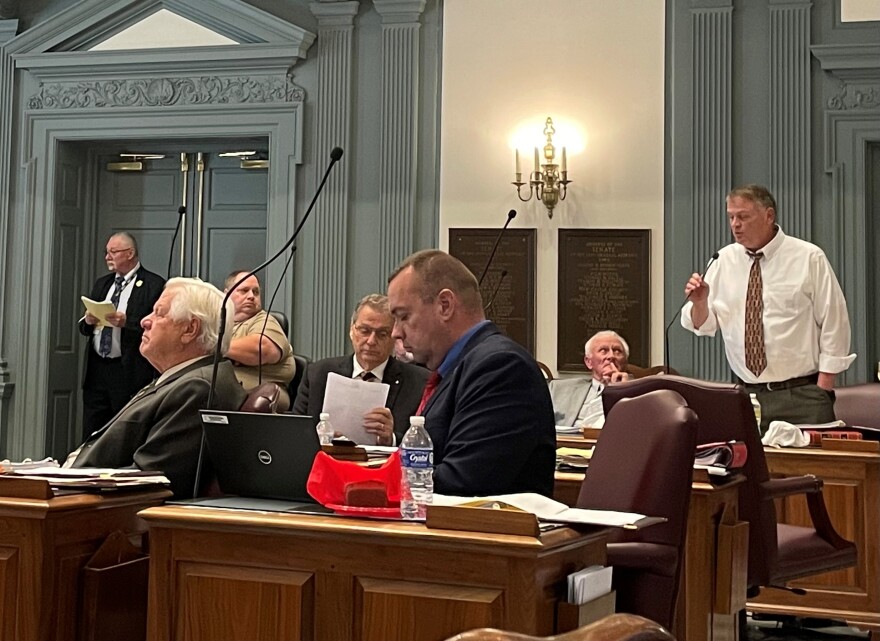Gov. John Carney (D) signed two election reform bills Friday, enabling Delawareans to register to vote on election day and to vote by mail.
And both immediately drew a court challenge on constitutional grounds
The two bills passed this spring despite firm Republican opposition. Democrats previously introduced a constitutional amendment to allow no-excuse absentee voting in 2019. It passed with bipartisan support that year but failed to garner any Republican votes in following session. Constitutional amendments must pass with a two-thirds majority in two consecutive sessions to become law.
Absentee voting rules are defined in Delaware’s constitution. Vote-by-mail supporters argue while both approaches expand voting access in similar ways, voting by mail is a voting methodology, which lawmakers can change.
But state Sen. Colin Bonini (R- Dover) contends the vote-by-mail bill was a partisan workaround by Democrats intended to stave off a possible surge in GOP voters this fall.
“Every time they’ve tried to change the voting, they’ve done it via trying to amend the constitution, which is, of course, the right way to do it," he said. "They couldn’t get the votes, so now they’re going to do it this way.”
The bill quickly drew a lawsuit filed GOP party chair Jane Brady on behalf of Michael Higgin and Michael Mennella.
"The Constitution provides you must vote in person on election day unless you qualify under very limited conditions to vote absentee. Mail in voting clearly violates that requirement, as it allows remote voting without declaring or meeting any of those limited conditions," said Brady in a statement. "The Delaware Constitution also provides that a period must be provided for new voters to register to vote but requires that the period end 10 days before the election.”
Common Cause Delaware executive director Claire Synder-Hall argues that while permitting no-excuse absentee voting would have been simpler, Delaware’s legislature is responsible for choosing other voting methodologies; vote-by-mail, she says, is distinct enough from absentee voting to fall into that category.
"Absentee voting started to enable overseas military personnel to vote, and it’s for people who are absent from the district," she said. "Vote-by-mail is not for people who are absent from the district; it’s just another option for people to make it more convenient and safer for them to vote from home.”
Snyder-Hall also notes that when Delaware temporarily allowed residents to vote by mail in 2020, turnout increased by roughly 6%.
She does not expect a judge to overturn the reforms ahead of this year’s elections in September and November. Brady concedes the legal challenge only pertains to the General election and not the Primary election.
Vote by mail and same day registration are set to take effect staring with September's primary election.



